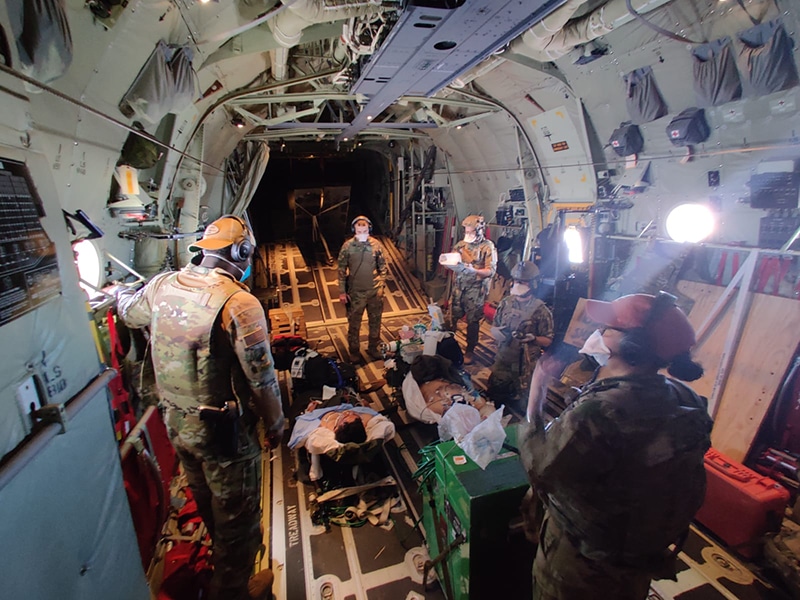Hand Hygiene: Shocking Statistics & How To Take Care of Your Hands
We’ve done the math on how many times nurses perform hand hygiene, plus some shocking facts and a few tips on how to take care of your hands as a nurse.
Our relentless research goes beyond shoes. Capsol allows us to talk all things nursing, from career advice and current news to self-care and mental health. These conversations with you, the community, and the world at large help us put our best foot forward when creating the best nursing shoes on the planet.
Happy Critical Care Transport Nurses Day, February 18th, 2021!
Every type of nurse deserves their day of thanks! This week, on February 18th, it’s Critical Care Transport Nurses day!
In this article, we’ll dive into what critical nurses do and the essential role they play in emergency medical care.
Let’s dive in – and don’t forget to find a Critical Care Transport Nurse near you and thank them for all they do!

Critical care transport nurses are responsible for the medical management of critically ill patients while transferring from one facility or location to another. They might use various methods of transportation but usually use an ambulance on the ground or a helicopter in the sky.
What Do They Do?
A Critical Care Transport Nurse is responsible for ensuring patients are cared for en route to hospitals who maintain proper resources to treat them.
Some things they might be doing while en-route:
This job would be good for someone who is good at making things happen with limited resources and can manage advanced medical procedures in alternative circumstances. It’s also important to be comfortable working in a fast-paced and often chaotic environment.
Critical Care Transport Nurses are often alone, or with only one assistant paramedic, while helping patients that may need multiple interventions simultaneously. They are required to think fast, work efficiently, and be highly independent.
The first step to become any type of nurse is to go to nursing school. For this specialty, it is preferred that you get at least a Bachelor’s degree in nursing.
2. Pass the NCLEX.
To be licensed and registered as a nurse in any specialty, you have to pass the NCLEX examination.
3. Gain experience.
Since you will be dealing with very medically-urgent patients as a Critical Care Transport Nurse, intensive care, emergency medicine, or trauma experience would be the best place to gain the necessary skills.
4. Become certified as a Critical Care Transport Nurse.
There are two options for certification: the first and more specific one is to be certified as a Transport Registered Nurse (CTRN) through the Board of Certification for Emergency Nursing. The second option is to become a Critical Care Registered Nurse (CCRN) through the Association of Critical Care Nurses. Having a CCRN is more versatile, but both are acceptable for becoming a Critical Care Transport Nurse.
BONUS! To learn more about becoming a Critical Care Transport Nurse, the Air & Surface Transport Nurse Association has a great resource on their website.
Every salary depends on location, position, and experience. However, a Critical Care Transport Nurse can expect to make upwards of $70,000 in most circumstances.
Though the research regarding the pay is all over the board due to many variables, it is best to do some local networking to find a more specific going rate in your area.

Critical Care Transport Nurses have a strenuous but vital job in emergency medical care; they are well-respected by many different industries. Here at Capsol, we salute them and want to say thank you for getting patients to where they need to be for the best chance of survival. You guys are rockstars!
Are you a Critical Care Transport Nurse? Tell us about your experience in the comments below? Do you have any tips for rookies?
Author
most recent
We’ve done the math on how many times nurses perform hand hygiene, plus some shocking facts and a few tips on how to take care of your hands as a nurse.
Celebrate Pediatric Nurses Week as we talk about what pediatric nurses do, ideas for showing appreciation, and a breakdown of how to become one. Don’t miss this!
Ever wonder, what is with nurses and coffee? I mean, why do nurses love coffee? So many of us depend on that rich, hot java to jumpstart a shift.
0 Comments